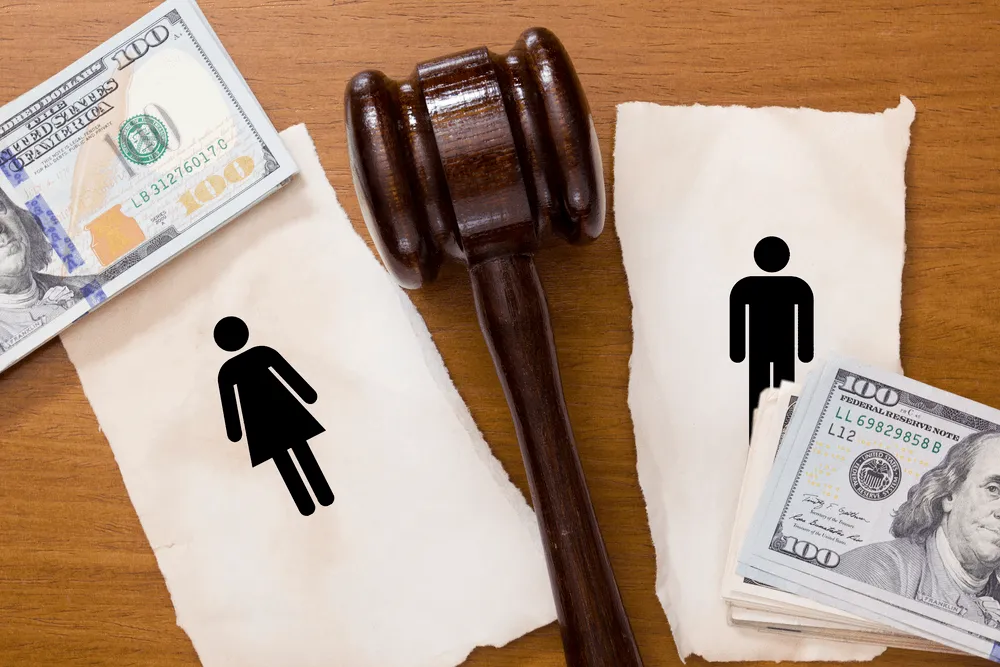There’s a moment in some divorces that feels like the rug’s been yanked out from under you. One day you’re managing bills, groceries, and maybe school tuition as a couple. The next, you log into your joint bank account, and it’s empty. No warning, no discussion, just gone. If this happens to you in Massachusetts, especially in Worcester or nearby towns like Shrewsbury or Millbury, you’ve got options, but time matters. This type of situation is common in high-asset divorces, where complex financial disputes and hidden assets often arise. Let’s walk through what you can do if your spouse drains the bank account before filing for divorce and how Massachusetts law sees it.
Can Your Spouse Legally Empty a Joint Account Before Filing for Divorce?
Not really. While it’s true that both spouses have access to a joint bank account, that doesn’t give either one a free pass to take everything. Massachusetts treats most assets accumulated during the marriage (whether held jointly or separately) as part of the marital estate under M.G.L. c. 208. That means joint funds are presumed to be shared, even if only one name is on the withdrawal slip.
Timing Matters
If your spouse empties the account before an uncontested divorce is filed, it’s not technically a violation of any court order, but that doesn’t make it okay. Courts can still view this as dissipation of marital assets, which is a legal term for when one spouse uses up or hides marital funds in a way that’s unfair or in bad faith.
Let’s say they cleaned out the account and bought a motorcycle. Or paid for a cruise. Or gifted money to a sibling. If it happened around the time your marriage started falling apart, a judge may view that as dissipatconion, and that can impact how the remaining assets are divided down the line.

What Counts as Financial Misconduct in a Massachusetts Divorce?
Massachusetts judges look at the whole story, especially your spouse’s intent.
Is Transferring Money to Family or Friends Considered Fraud?
It can be. If your spouse moved money to someone else to keep it from being divided in the divorce, that’s likely a fraudulent conveyance. Courts see through those kinds of moves quickly, especially if it’s cash going to a close friend or family member for no clear reason.
What If the Funds Were Used to Pay Legitimate Bills?
That’s where it gets tricky. If your spouse used the money to pay the mortgage or medical bills, a judge might see it as a necessary expense. But if they were funneling funds into a secret account or spending lavishly while you were still living paycheck to paycheck, that could signal bad faith spending. Judges weigh intent, context, and timing. It’s not just about what they did, but why they did it.
Can the Court Force Your Spouse to Return the Funds?
Yes, especially if you act quickly.
What Emergency Orders Are Available Through the Worcester Probate and Family Court?
You (or more likely your lawyer) can file a temporary restraining order (TRO) or a preliminary injunction to freeze assets and prevent further depletion. These are emergency legal tools, and judges in Worcester and surrounding courts take them seriously.
In your filing, you’ll likely need:
- A Rule 401 financial statement
- An affidavit of irretrievable breakdown (if divorce is imminent)
- Any supporting documents that show what was taken and when
Local courts also follow Standing Order 1-11, which requires financial disclosures early in the process. That means both parties must put their financial cards on the table.
How Do Judges Decide Whether to Restore Assets?
They look at fairness, good faith, and financial need. If your spouse drained the account to punish you or gain an unfair advantage, the court can take that into account when dividing the remaining assets or even order repayment.
What Legal Steps Should You Take Immediately?
If you’re staring at a zeroed-out account, don’t panic, but don’t wait, either.
Should You Close the Remaining Accounts or Freeze Them?
You probably shouldn’t close anything without talking to a lawyer, especially if the divorce hasn’t been filed yet. But you can ask your bank to freeze joint accounts to prevent further withdrawals.
What Documents Should You Collect First?
Start a paper trail. You’ll want:
- Certified bank statements (before and after the withdrawal)
- Any emails, texts, or messages that show intent
- A list of recurring bills that are now unpaid
Then, meet with a local divorce attorney and file a motion for a temporary order. This motion can help you freeze assets, request support, or demand an accounting of the missing funds. You may also need a financial subpoena to get records your spouse won’t voluntarily share.

How Does Dissipation of Assets Affect Final Property Division?
Massachusetts follows an equitable distribution model (not 50/50, but fair). And “fair” can get subjective when one spouse has already taken more than their share.
Will the Judge “Penalize” Your Spouse?
They might. Courts can reallocate marital property in response to misconduct. So, if your spouse drained $50,000 from your joint account, you might be awarded other assets to make up for it, even a larger share of the remaining estate.
Can You Receive a Larger Share of the Estate?
Absolutely. Judges have the discretion to balance the scales. In some cases, you may need an asset tracing report from a forensic accountant to track where the money went. A financial expert witness can also help explain complicated transfers or hidden funds.
What Happens If the Funds Were in a Sole Account?
This trips up a lot of people, but here’s the key point: Title doesn’t always determine ownership.
Is a Non-Working Spouse Entitled to Money Held in the Other Spouse’s Name?
Often, yes. Massachusetts considers the source and use of the funds. If the account was funded during the marriage, it’s likely part of the marital estate, even if only one name is on it.
Does the Account Name Override the Marital Nature of Funds?
Not usually. Courts look at whether the money was commingled, how it was used, and whether it grew during the marriage. So don’t let your spouse tell you, “It’s in my name, so it’s mine.” That’s not how Massachusetts law works.
Can You Press Criminal Charges for Draining the Account?
Sometimes, but divorce courts usually handle it civilly.
If your spouse crossed into fraud or outright theft, and especially if they forged your name or moved money illegally, you might have a case for criminal fraud or larceny under M.G.L. c. 266 §30. That could involve the Worcester Police Department, but it’s often a last resort. Divorce judges can impose civil sanctions that restore what you lost without jumping into a criminal case.
How Can a Worcester Divorce Lawyer Help in Financial Misconduct Cases?
This isn’t something you want to DIY.
What Does a Lawyer File First?
They’ll likely file a motion for a TRO, followed by subpoenas and emergency discovery. Timing is everything. Courts move faster when money disappears overnight.
Can Your Attorney Issue Subpoenas Before the Case Is Heard?
Yes, especially if they can show urgency. Your attorney can subpoena bank records, employer payroll, or even Venmo and PayPal accounts to figure out where the money went. A skilled Worcester lawyer will know how to work with Family Court standing orders and how to navigate the Worcester Probate and Family Court system quickly.
And remember, a subpoena duces tecum is more than legalese. This is your ticket to getting answers fast.
FAQ
What if my spouse emptied the account and already spent the money?
That doesn’t mean you’re out of luck. The court can reallocate property, award you a larger share of what’s left, or even order restitution.
Can I stop my spouse from using joint credit cards before divorce?
Yes. Ask your lawyer to file a motion for a temporary order that freezes or restricts credit card use. This helps stop further debt from piling up in your name.
How fast can I get a court hearing to freeze assets in MA?
Usually within days, especially if the situation is urgent. Worcester Family Court has emergency motion procedures in place for exactly this reason.
Can we still settle the divorce if they already took the money?
Definitely. But a fair settlement will likely need to account for the missing funds. Your lawyer can help negotiate terms that reflect that.
When the bank balance disappears, it’s more than a financial problem. It’s a breach of trust. Massachusetts law recognizes that, and the courts here in Worcester and the surrounding towns are equipped to handle it. The key is moving fast, staying grounded, and working with someone who knows how to trace the missing pieces of your financial life.
